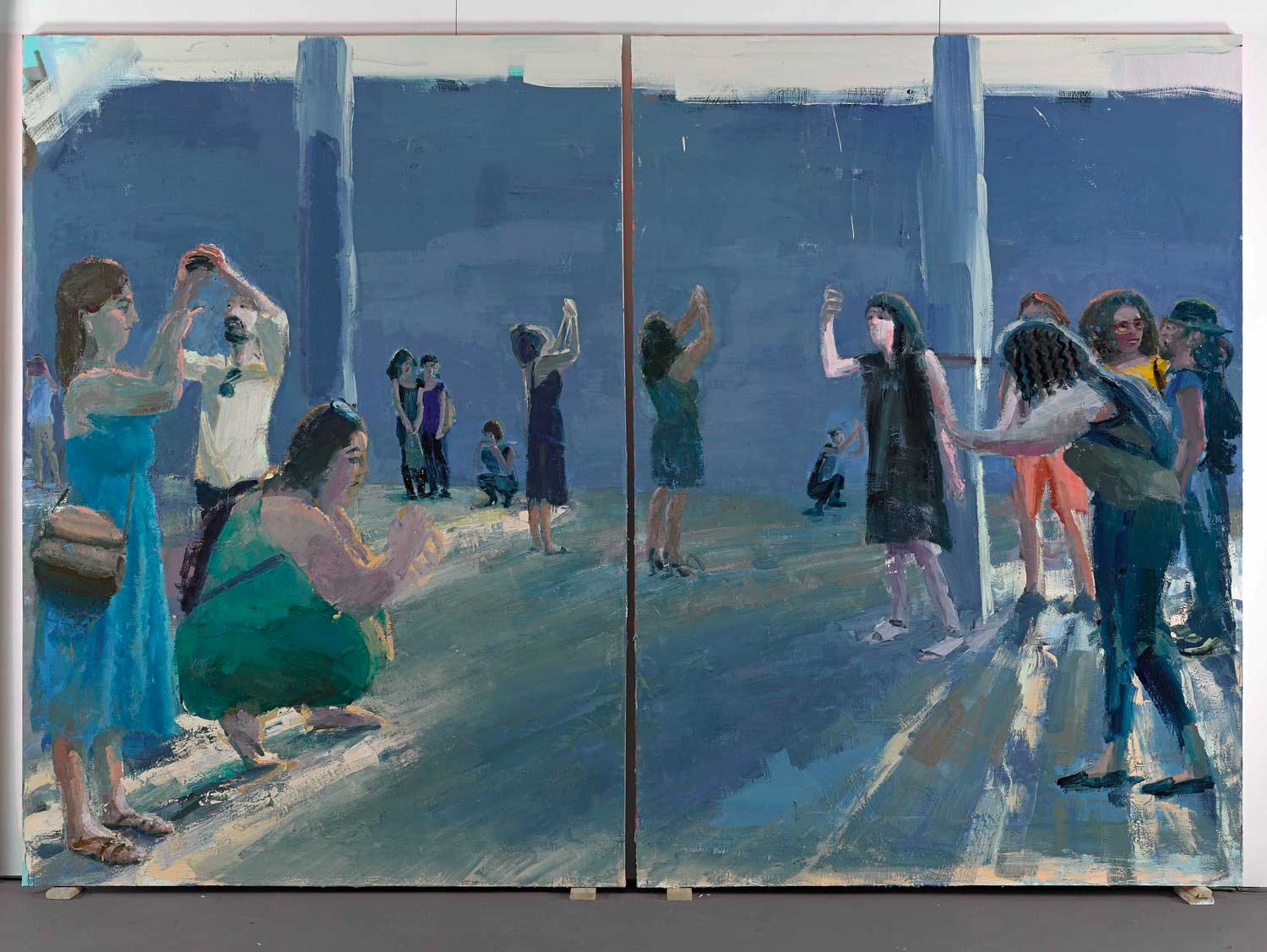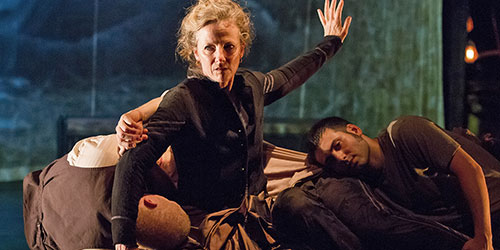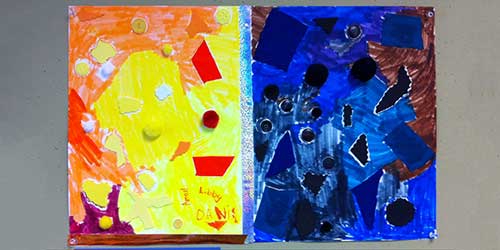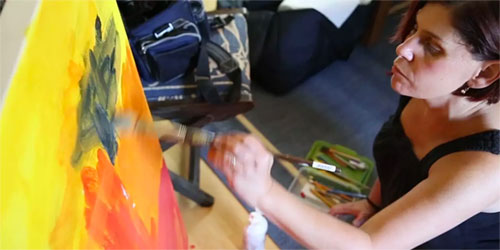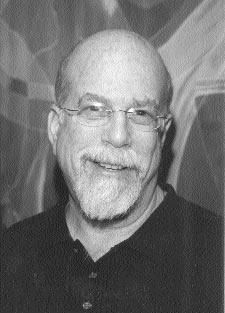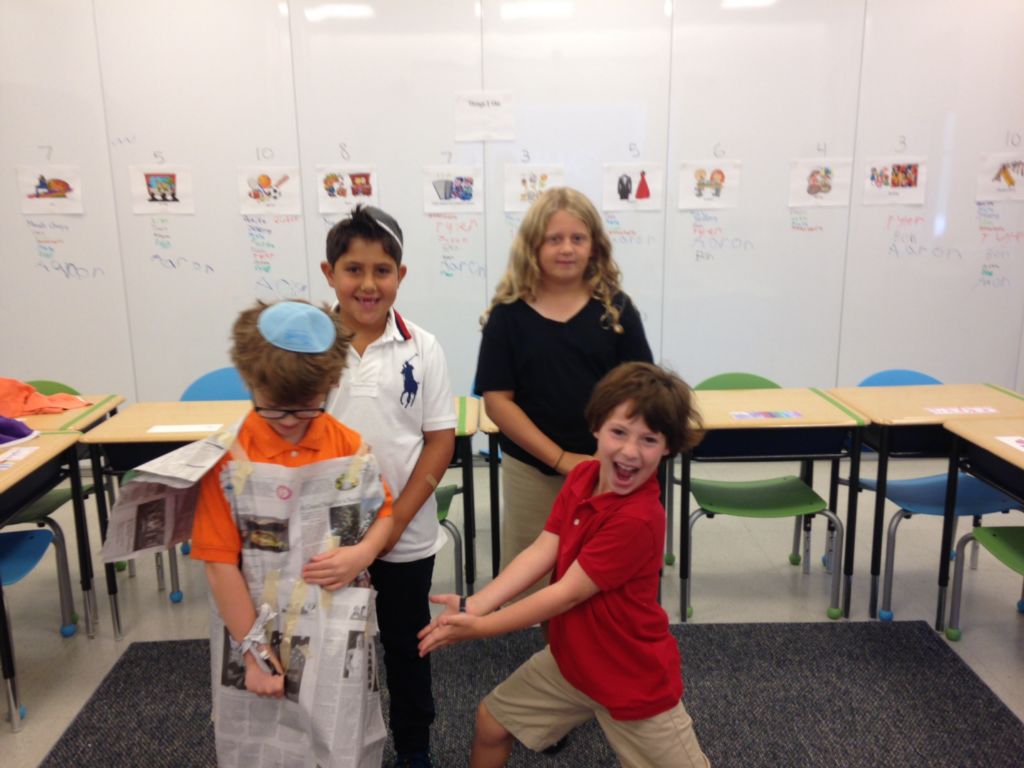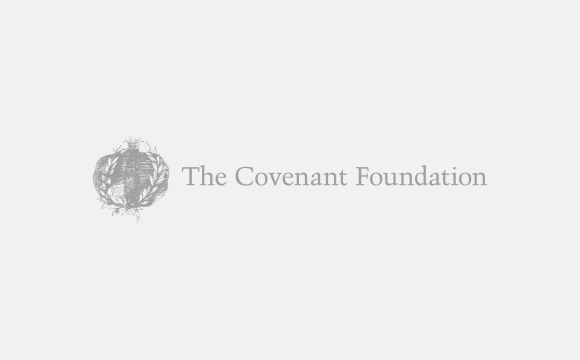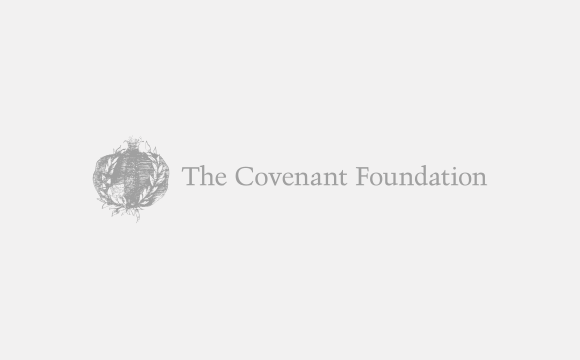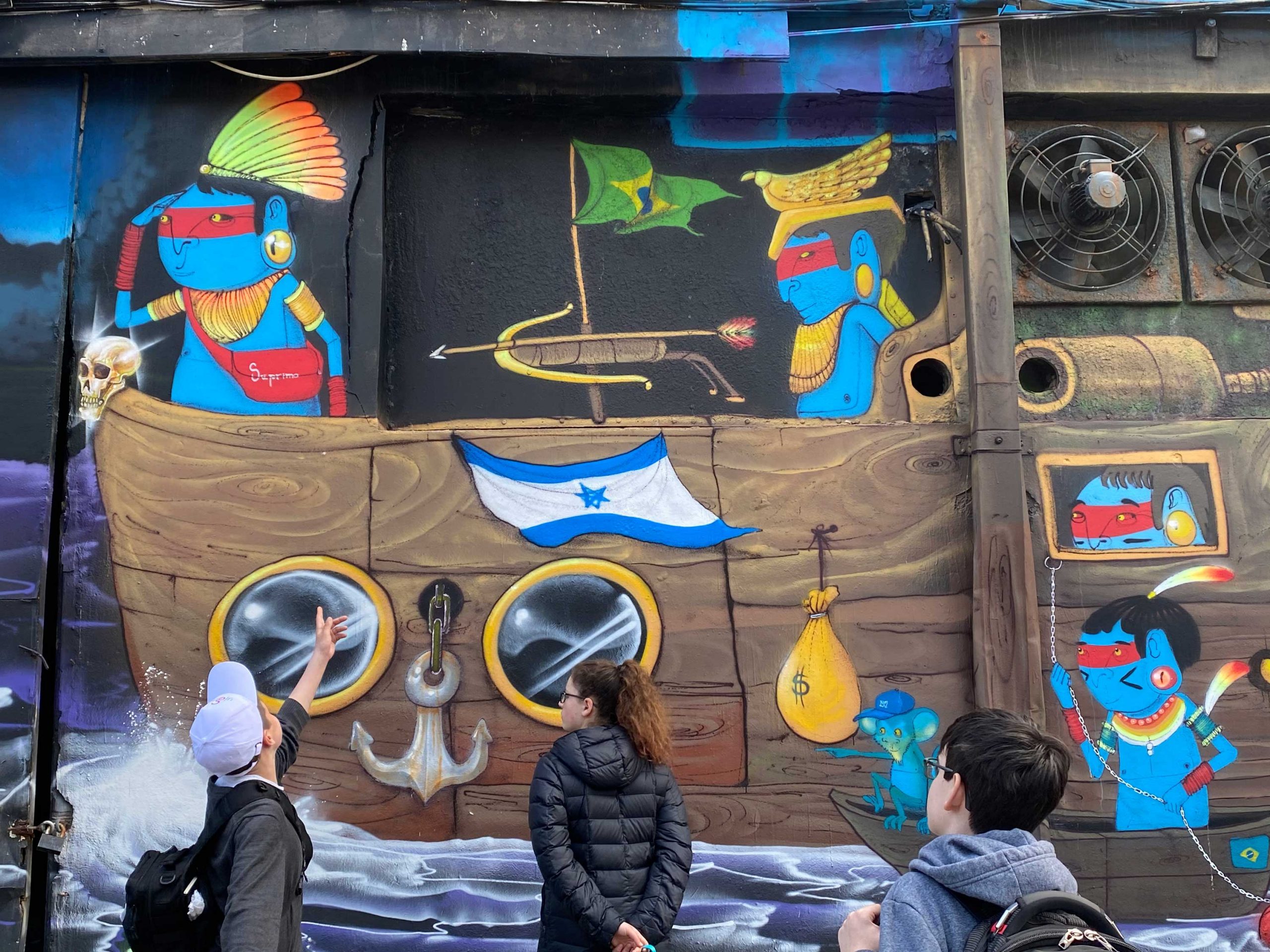An Abundance of Art and Learning: The Shefa School Welcomes First Students this Fall
For some kids, though, the start of school also brings anxiety, and for their parents, a struggle to help them adjust. It’s not easy to find the right educational setting for any child, let alone a child who learns differently. And for many parents, finding the right classroom and the right educational team for their child means making multiple sacrifices—financial, professional, and in some cases, religious, as well.
But thanks to the Shefa School, a new Jewish community day school on the Upper West Side of Manhattan that welcomed its first students this month, there will hopefully be fewer nervous kids and parents this fall.
“The idea of a Jewish day school for kids with language-based learning disabilities is just what we would have wanted, if we could have had it,” says Heidi Lurensky, the mother of a child who needed to leave Jewish day school and enroll at a secular school in order to meet his learning needs. “We [were] happy with the education Jonathan was getting, but we were missing the Jewish piece,” Lurensky explains.
This September, Jonathan began 6th grade at the Shefa School, a brand new educational endeavor founded by Ilana Ruskay-Kidd, who previously directed the Saul and Carole Zabar Nursery School at the JCC in Manhattan. Jonathan and 23 other students like him will now benefit from a supportive education, tailored and targeted to their learning needs, within a pluralistic Jewish day school environment.
For many students with language-based learning disabilities, spoken or written language might not be their most nuanced form of expression. It therefore becomes even more important for educators at a school like Shefa to engage students through the use of alternative learning modalities. “Our students have multiple intelligences,” Ruskay-Kidd explains. “And one way we can engage our students and build on those strengths, is through the arts.”
To this end, with the support of a Covenant Foundation ignition grant, the Shefa School team has developed an arts-enriched curriculum. “I really wanted to think about as many ways as possible to integrate Jewish learning into our work, and arts felt like a really natural place to talk about Jewish history, culture, tradition and Israel,” Ruskay-Kidd says. Shefa students will have a traditional arts period as part of their core curriculum, where they’ll experiment with visual arts, media, collage, clay, and painting. They’ll also have an optional arts “chug” period.
Students at Shefa will also have opportunities to engage in the arts as they experience the Jewish weekly and seasonal schedule. They’ll make Rosh Hashanah cards, decorate the Sukkah, learn about and create ritual objects and engage in Jewish music and dance. Students will also have a chance to respond to the weekly Torah portion in writing, or to draw and create an artistic rendering of what they’ve learned.
Last spring, Ruskay-Kidd and her faculty hosted an arts roundtable with working artists, to help brainstorm an arts curriculum that would best meet the needs of Shefa’s incoming students. Some of these artists will continue their relationship with Shefa, including Hanoch Piven, an Israeli mixed media artist who teaches about creativity. As part of their visiting artist program, Piven will come and spend a day this fall with Shefa students, to work on collage. “Collage is such an accessible art form, and Hanoch beautifully articulates how something simple, like putting four random materials together can allow for a playfulness around the arts; arts can be serious but it’s also a place of joy and delight,” Ruskay-Kidd emphasizes.
“Many artists really understand and appreciate multiple intelligences,” she continues. “Many of them struggled [with the demands of a conventional school curriculum] when they were young, and they’ve since realized their potential. By joining us at school, our kids get to see that there are amazingly successful people who might have struggled just like they did, but who are now doing really wonderful things. Maybe our students will be future artists, architects, or designers,” Ruskay-Kidd continues. “There are all kinds of talents, and we want to support and nurture those talents, and show students that there are so many ways to build a life over time.”
Thanks to its prime location on the Upper West Side, Ruskay-Kidd and her faculty also intends to take advantage of the artists who are living and working right in Shefa’s neighborhood, and invite them to school. And naturally, Shefa students will access all that New York City has to offer, with visits to galleries and museums, interaction with Jewish storytellers, and so much more.
By allowing students to express themselves in various ways beyond the conventional academic structures, to explore, get messy, take risks and hone their individual strengths, the Shefa team hopes to create an educational experience that will bolster students, and lift them up to reach their highest potentials.
“Ba’asher Hu Sham,” invokes Yoni Schwab, Assistant Director of the Shefa School, when talking about the Jewish value that guides the Shefa mission. “Reach every person where they are, with what they need, at this moment.”
Learn more about the Shefa School here: https://www.shefaschool.org/Pages/Welcome
By Adina Kay-Gross for The Covenant Foundation
